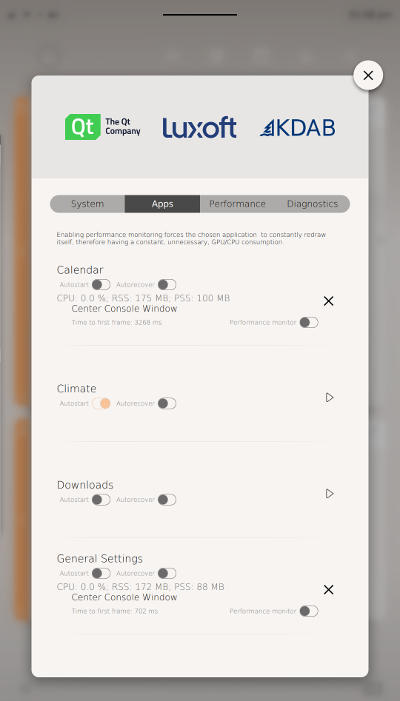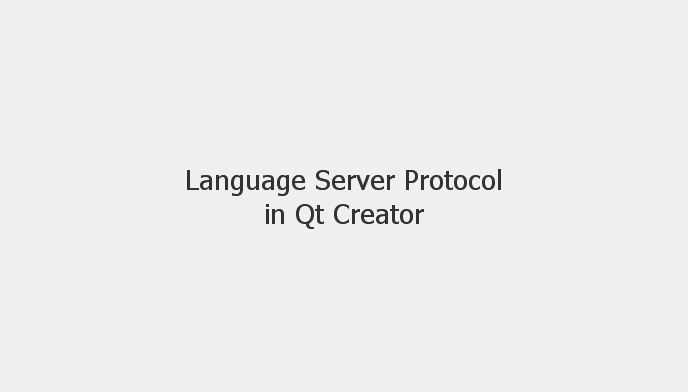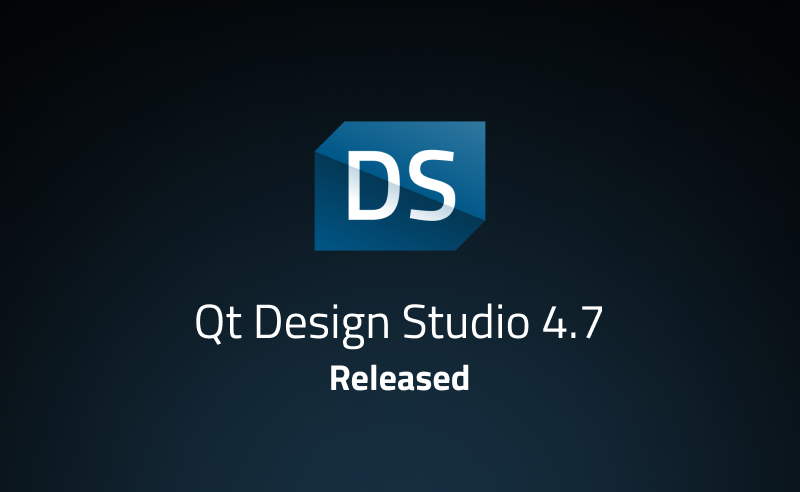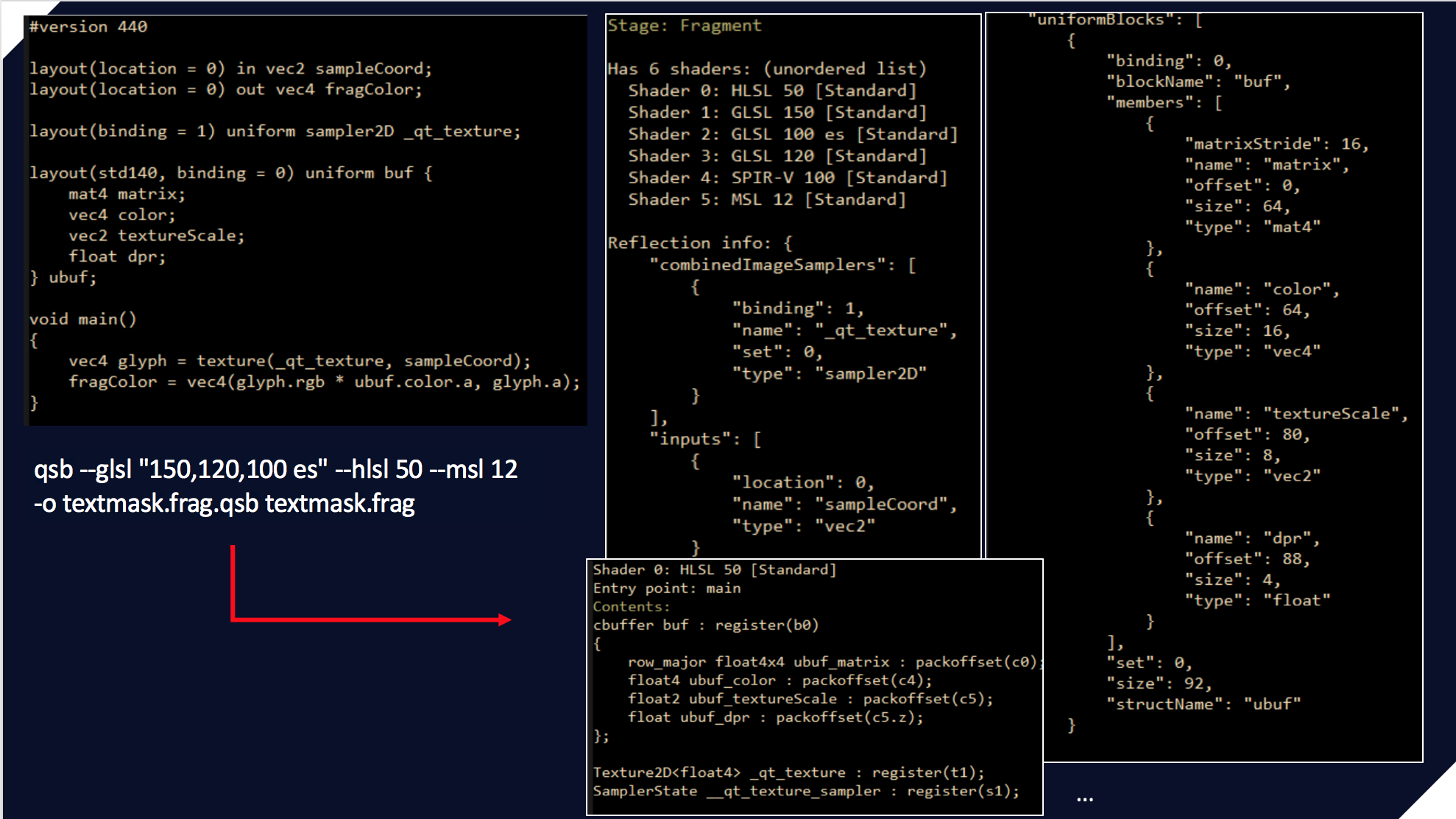
- Latest Blogs
-
Select Category
Categories
- qt-labs-chinese (120)
- Qt (68)
- qt-blogs-chinese (39)
- Qt Quick (27)
- qtearth-blogs-chinese (26)
- 嵌入式 (21)
- Qt Creator (20)
- qt-quarterly-chinese (20)
- Releases (17)
- Dev Loop (15)
- C++ (10)
- News (10)
- OpenGL (10)
- macOS (10)
- Biz Circuit (9)
- Qt Quick 2 (9)
- Windows (9)
- Contributors (8)
- Hot Topic (8)
- Performance (8)
- Announcements (6)
- Pinned (6)
- Artificial Intelligence AI (5)
- Biz Circuit & Dev Loop (5)
- Build system (5)
- Community (5)
- Cyber Resilience Act (CRA) (5)
- Cybersecurity (5)
- Graphics (5)
- KDE (5)
- Network (5)
- QML (5)
- Qt 5 (5)
- Qt 6 (5)
- Qt Design Studio (5)
- Symbian (5)
- WebKit (5)
- 3D (4)
- Android (4)
- Embedded (4)
- Generative AI (4)
- Labs (4)
- Open Governance (4)
- Qt Quick 3D (4)
- Qt Script (4)
- Qt for MCUs (4)
- Compilers (3)
- Cross platform (3)
- Design (3)
- Lighthouse (3)
- Linux (3)
- Maemo (3)
- Metal (3)
- Painting (3)
- Qt 6.8 (3)
- Qt Design Tools (3)
- Qt Simulator (3)
- S60 (3)
- UI/UX (3)
- UX (3)
- Vulkan (3)
- 工业车辆 (3)
- Accessibility (2)
- Automation (2)
- Automotive (2)
- Cloud (2)
- DS Pinned (2)
- Design Sphere (2)
- Desktop (2)
- Direct3D (2)
- Events (2)
- Figma (2)
- GammaRay (2)
- Graphics Dojo (2)
- HTTP (2)
- Internet (2)
- Layouts (2)
- PySide (2)
- Python (2)
- QPA (2)
- Qt 3D Studio (2)
- Qt Project (2)
- Qt for Automation (2)
- Qt for Python (2)
- Qt for WebAssembly (2)
- QtMobility (2)
- Roadmap (2)
- Security (2)
- UI Development (2)
- UI Tools (2)
- Web (2)
- 嵌入式开发 (2)
- 平台工程 (2)
- 软件开发 (2)
- Animated Vector Graphics (1)
- Axivion (1)
- Background (1)
- CMake (1)
- Clang (1)
- Clazy (1)
- Debugging (1)
- Development (1)
- Docker (1)
- Documentation (1)
- Enginio (1)
- Framework (1)
- Functional Safety (1)
- Git (1)
- HMI (1)
- HotSpot (1)
- IDE (1)
- IoT (1)
- Itemviews (1)
- KDAB (1)
- LTS (1)
- Lua (1)
- MQTT (1)
- Marketplace (1)
- Medical (1)
- MeeGo (1)
- Meet Qt (1)
- Mobile (1)
- Multimedia (1)
- MyScript (1)
- Optimization (1)
- Photoshop (1)
- Premium Support (1)
- Q&A (1)
- QBS (1)
- QLALR (1)
- QML Live (1)
- QNetworkAccessManager (1)
- Qt 3D (1)
- Qt 5.11 (1)
- Qt 5.15 (1)
- Qt 6.10 (1)
- Qt 6.9 (1)
- Qt Automotive Suite (1)
- Qt Bridge (1)
- Qt Framework (1)
- Qt Graphs (1)
- Qt Location (1)
- Qt Mobility (1)
- Qt Open source Licensing (1)
- Qt Quick Controls (1)
- Qt Safe Renderer (1)
- Qt Web Runtime (1)
- QtWebKit (1)
- RTOS (1)
- Raspberry Pi (1)
- Shiboken (1)
- Sketch (1)
- Software Development (1)
- Sponsership (1)
- Squish (1)
- Text and font handling (1)
- UI (1)
- UI Design (1)
- UI开发 (1)
- Virtual Keyboard (1)
- WebAssembly (1)
- WebGL (1)
- Websockets (1)
- Zephyr (1)
- Zephyr Project (1)
- apitrace (1)
- benchmark (1)
- business、Forrester、project management (1)
- container (1)
- demos (1)
- handwriting (1)
- httpserver (1)
- iOS (1)
- linguist (1)
- threaded (1)
- topic alias (1)
- 医疗 (1)
- 新版本 (1)
- 桌面端 (1)
- 用户界面 (1)
- 移动端 (1)
- 网络安全 (1)
- 设计 (1)
- 软件定义成像 (1)
- 软件质量 (1)
-
Select Month
Archives
- March 2011 (12)
- April 2013 (12)
- February 2011 (10)
- April 2011 (8)
- May 2013 (7)
- July 2013 (7)
- November 2024 (7)
- June 2013 (6)
- January 2025 (6)
- January 2011 (5)
- December 2018 (5)
- December 2010 (4)
- July 2012 (4)
- August 2011 (3)
- October 2011 (3)
- February 2012 (3)
- March 2012 (3)
- April 2012 (3)
- March 2013 (3)
- October 2013 (3)
- April 2018 (3)
- November 2018 (3)
- June 2019 (3)
- August 2019 (3)
- January 2020 (3)
- June 2020 (3)
- October 2024 (3)
- February 2025 (3)
- May 2025 (3)
- June 2025 (3)
- July 2025 (3)
- August 2025 (3)
- September 2013 (2)
- November 2013 (2)
- December 2013 (2)
- January 2019 (2)
- May 2019 (2)
- July 2019 (2)
- March 2020 (2)
- April 2020 (2)
- May 2020 (2)
- March 2025 (2)
- April 2025 (2)
- May 2011 (1)
- September 2011 (1)
- November 2011 (1)
- May 2012 (1)
- June 2012 (1)
- August 2012 (1)
- December 2012 (1)
- March 2014 (1)
- April 2014 (1)
- May 2014 (1)
- December 2014 (1)
- February 2015 (1)
- June 2018 (1)
- July 2018 (1)
- August 2018 (1)
- October 2018 (1)
- March 2019 (1)
- April 2019 (1)
- November 2019 (1)
- December 2019 (1)
- February 2020 (1)
- August 2024 (1)
- December 2024 (1)
- November 2025 (1)
-
Subscribe
Subscribe to Our Blog
Stay up to date with the latest marketing, sales and service tips and news.
Subscribe via Email
Qt Creator 4.8.0正式发布
本文翻译自:Qt Creator 4.8.0 released
原文作者:Eike Ziller
校审:Richard Lin
我们很高兴地宣布Qt Creator 4.8.0正式发布了!
编程语言支持
我们添加了对语言服务器协议(LSP)的实验性支持,这为Qt Creator增加了对多种编程语言的基本支持。

语言服务器协议是连接编辑器或IDE和某种编程语言之间的标准化的桥梁。它让编辑器和IDE可以轻松支持某种编程语言:只要该语言能提供一个使用该协议的服务端程序。任何实现了该协议客户端的编辑器都能获得该编程语言的代码自动完成、代码跳转和代码诊断等功能。当然从另一个角度来说:实现了编程语言协议客户端的编辑器会自动获得多种编程语言的基本支持。现在已经有许多编程语言的语言服务器的实现。您可以在官方LSP网站和社区网站上找到这些实现的清单以及它们的状态。
要在Qt Creator中设置语言服务器,首先需要在“帮助”>“关于插件”(在macOS上是“Qt Creator”>“关于插件”)中启用“LanguageClient”插件。然后打开“选项”>“Language Client”选项,添加语言服务器的可执行文件,并指定要使用该语言服务器打开的MIME类型或glob模式,以及服务器需要在命令行上传递的所有参数。
Qt Creator目前支持代码补全,语法高亮,符号定义跳转以及集成来自语言服务器的诊断信息。代码高亮是通过通用高亮器(highlighter)完成的,因为语言服务器协议不提供这个。
对C++的支持
我们将Clang code model更新到LLVM 7.0。我们还为auto关键字实现了Follow Symbol,选中的函数现在可以自动补全提示可用的重载。您可以使用新的“构建”> “Generate Compilation Database”,将代码模型中关于您项目的信息作为编译数据库(compilation database)导出。
还有几个新的实验性插件:
编译数据库项目(Compilation Database Projects)
启用CompilationDatabaseProjectManager插件后,您可以在Qt Creator中将编译数据库作为项目打开。编译数据库基本上是一个文件列表和用于编译它们的编译器标志。一些构建系统和工具能够生成此类数据库以供其他工具使用。这可以替代使用Generic Project,因为它可以更好地提供编译器标志的相关信息以及代码模型的include路径。
基于Clang Format的缩进
通过LibFormat进行自动缩进,这是Clang Format使用的后端。启用ClangFormat插件就可以试用。
Cppcheck诊断
将工具Cppcheck生成的诊断集成到编辑器中。启用Cppcheck插件来试用。
调试
Qt Creator 4.8支持同时运行多个调试器。调试模式下的调试工具栏多了一个弹出菜单,您可以在其中切换正在运行的调试器实例并切换调试器的“预设”视图,这样会启动新的调试器。每个正在运行的调试器实例还维护自己的一组视图(Locals,Watches,Stack等)及其布局。
获取Qt Creator 4.8.0
开源版本可在Qt下载页面上找到,您可以在Qt Account Portal上找到商业许可的软件包。Qt Creator 4.8.0也可通过在线安装程序中的更新获得。请在我们的bug tracker中发布问题。您也可以在chat.freenode.net上的#qt-creator和Qt Creator邮件列表上的IRC上找到我们。
Subscribe to Our Blog
Stay up to date with the latest marketing, sales and service tips and news.
I want the latest in...
Try Qt 6.0 Now!
Download the latest release here: www.qt.io/download.
Qt 6 was created to be the productivity platform for the future, with next-gen 2D & 3D UX and limitless scalability.
Visit the Qt Resource Center
Find webinars, use cases, tutorials, videos & more at resources.qt.io
We're Hiring
Check out all our open positions here and follow us on Instagram to see what it's like to be #QtPeople.
Näytä tämä julkaisu Instagramissa.Henkilön Qt (@theqtcompany) jakama julkaisu

